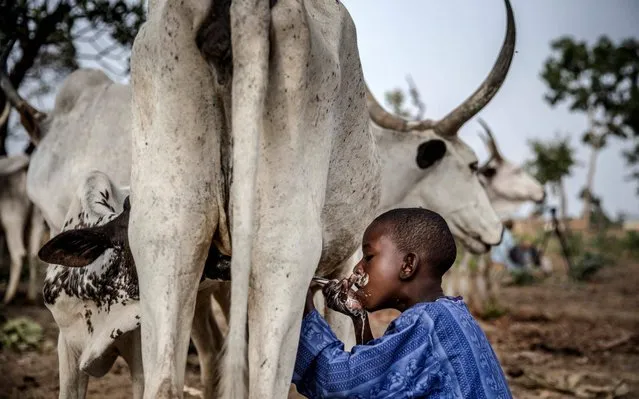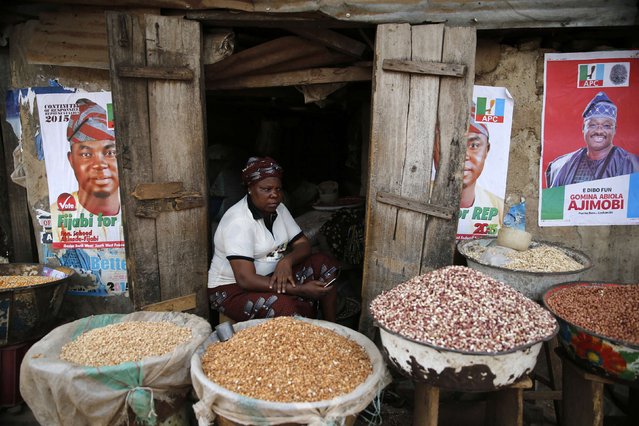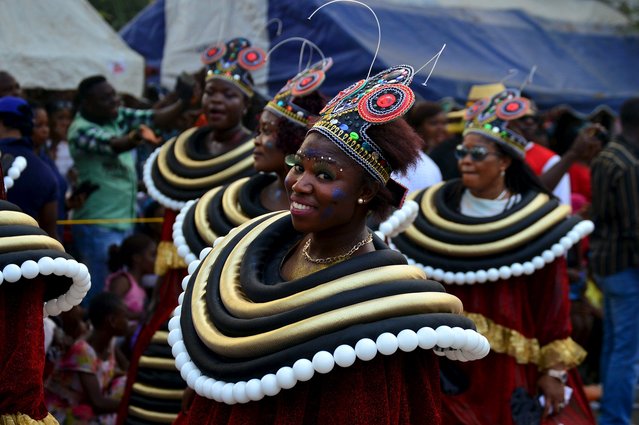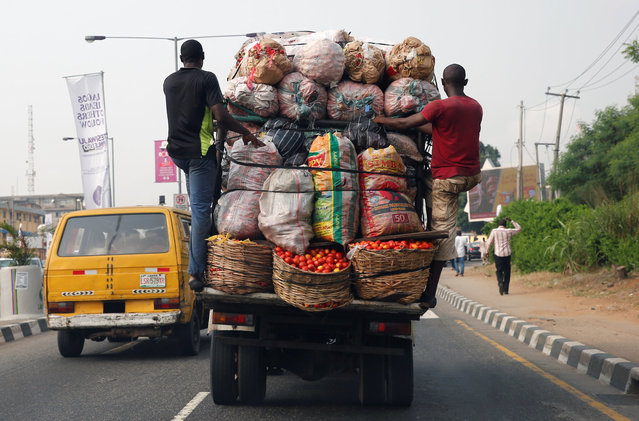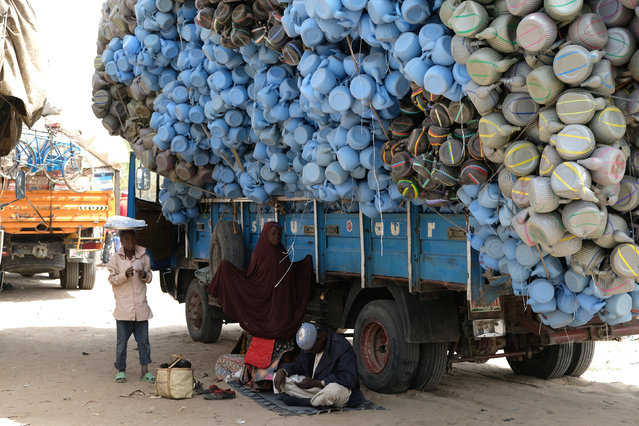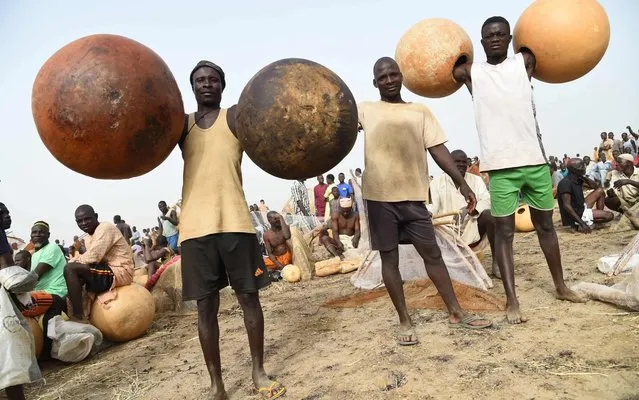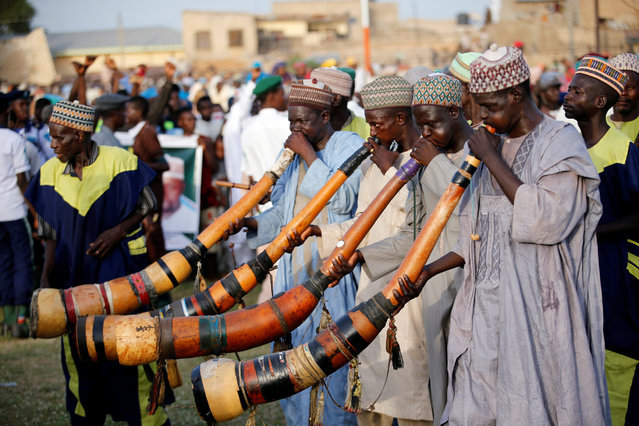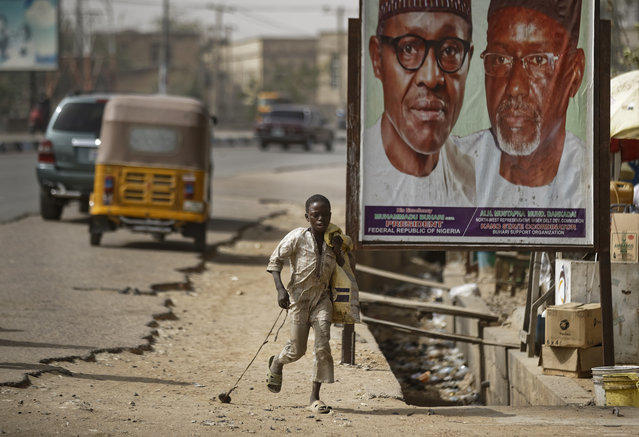
A young boy scavenges for re-sellable items from garbage on the streets, runs past a sign showing incumbent President Muhammadu Buhari, left, and local party official Mustapha Dankadai, right, in Kano, northern Nigeria Friday, February 15, 2019. (Photo by Ben Curtis/AP Photo)
18 Feb 2019 00:03:00,post received
0 comments

